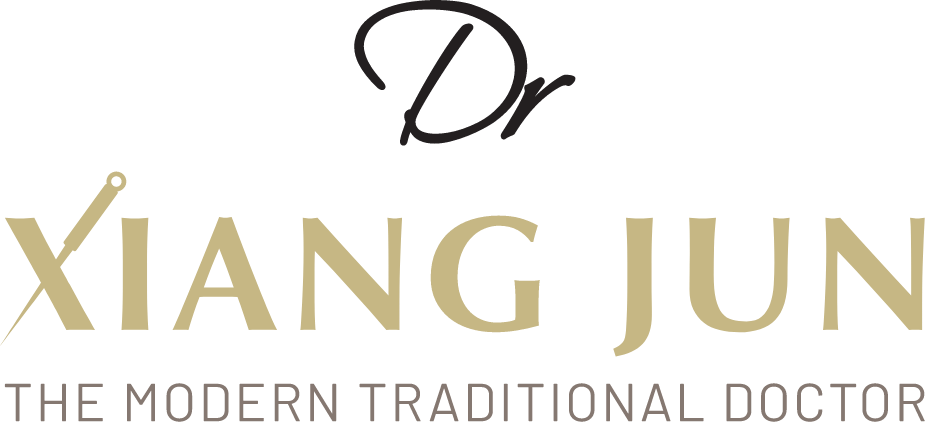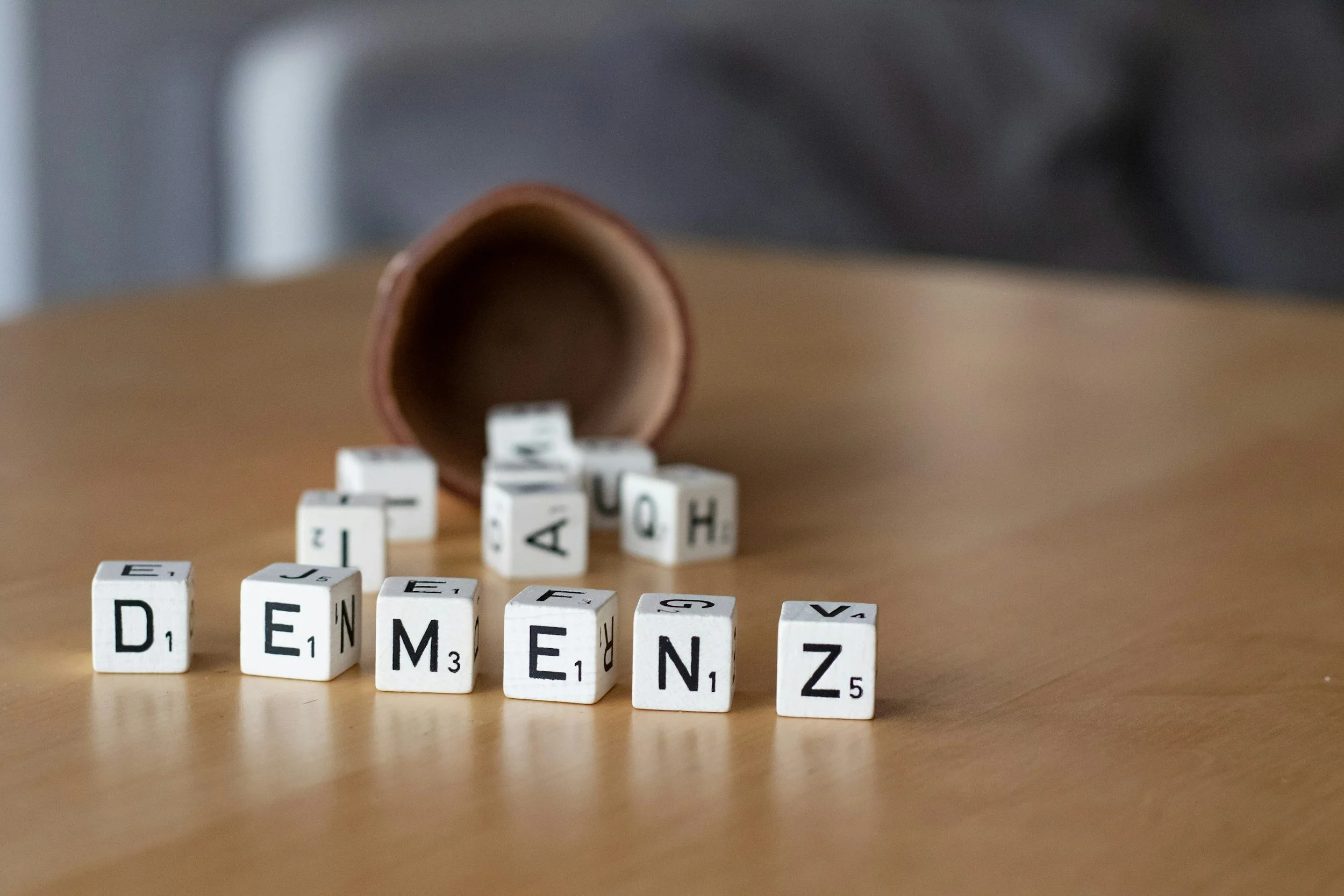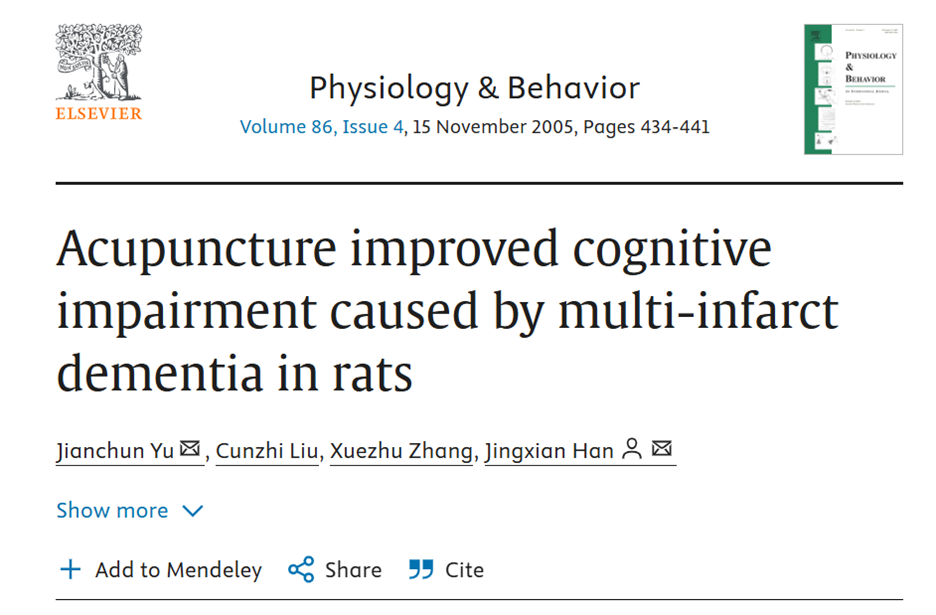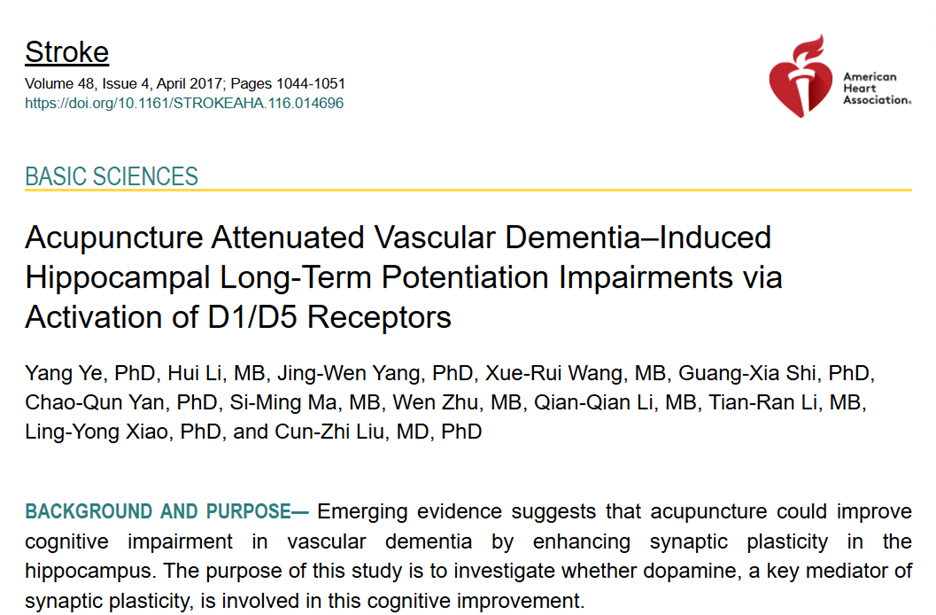Scientific Proof to How your Body react to Acupuncture - Dementia
Regular sessions of Acupuncture can reduce symptoms and delay progression of Dementia.
Dementia is a chronic, acquired, and progressive cognitive impairment syndrome which is characterized by slow cognitive decline in people age 65 and older.
Alzheimer's disease (AD) and vascular dementia (VD) are the two most common forms of dementia.
Currently, no specific drugs can treat dementia or reverse the course of this disease. Existing therapeutics that target improvements in cognitive function mainly include acetylcholinesterase inhibitors (Donepezil, Rivastigmine, and Huperzine-A), N-methyl-D-aspartate receptor antagonists (Memantine), and brain metabolism activators (Oxiracetam).
Most of these medications, however, have significant adverse effects, such as nausea, vomiting, and loss of appetite.
Acupuncture has been suggested as being effective for many mental disorders, such as sleep disorders, depression and dementia. For dementia, acupuncture has been shown to effectively improve memory and cognitive ability.
Below are some of the many scientific papers that supports Acupuncture in helping dementia.
Conclusion: Acupuncture exerted a protective effect on cognitive impairment caused by cerebral multi-infarction in rats, and acupuncture has a specificity of cure. The mechanisms of acupuncture may be related to the inhibition of cell apoptosis, anti-free radicals, reduction of inflammatory factors, reduction of Ca2+ overload, and changes in neurotransmitters.
Conclusion: Acupuncture remarkably reversed cognitive deficits in 2-vessel occlusion model (2VO) rats, and the acupuncture points Zusanli (ST36) and Baihui (GV20) were confirmed to be the most effective combination. Improvement in cognition and hippocampal synaptic plasticity induced by acupuncture was achieved via activation of D1/D5 receptors in 2VO rats.
Conclusion: The improvement of dementia with acupuncture treatment was associated with modulation of synaptic function, immunity, inflammation, and apoptosis.
Signaling pathways including neuroactive ligand-receptor interaction, GABAergic synapse, calcium signaling pathway, cAMP signaling pathway, chemokine signaling pathway, and inflammatory mediator regulation of TRP were functionally enriched through acupuncture.
Further reading:
Everything you need to know about Acupuncture
Scientific Proof to how your body reacts to Acupuncture - Facial Tightening
Scientific Proof to how your body reacts to Acupuncture - Eczema
Scientific Proof to how your body reacts to Acupuncture - Plantar Fascitis
Scientific Proof to how your body reacts to Acupuncture - Sinusitis
Scientific Proof to how your body reacts to Acupuncture - Snoring
Scientific Proof to How your Body reacts to Acupuncture - Stress Management
Scientific Proof to How your Body reacts to Acupuncture - Sciatica
Scientific Proof to how your body reacts to Acupuncture - Neck and Shoulder Aches and Pain
Scientific Proof to how your body reacts to Acupuncture - Urinary Incontinence





